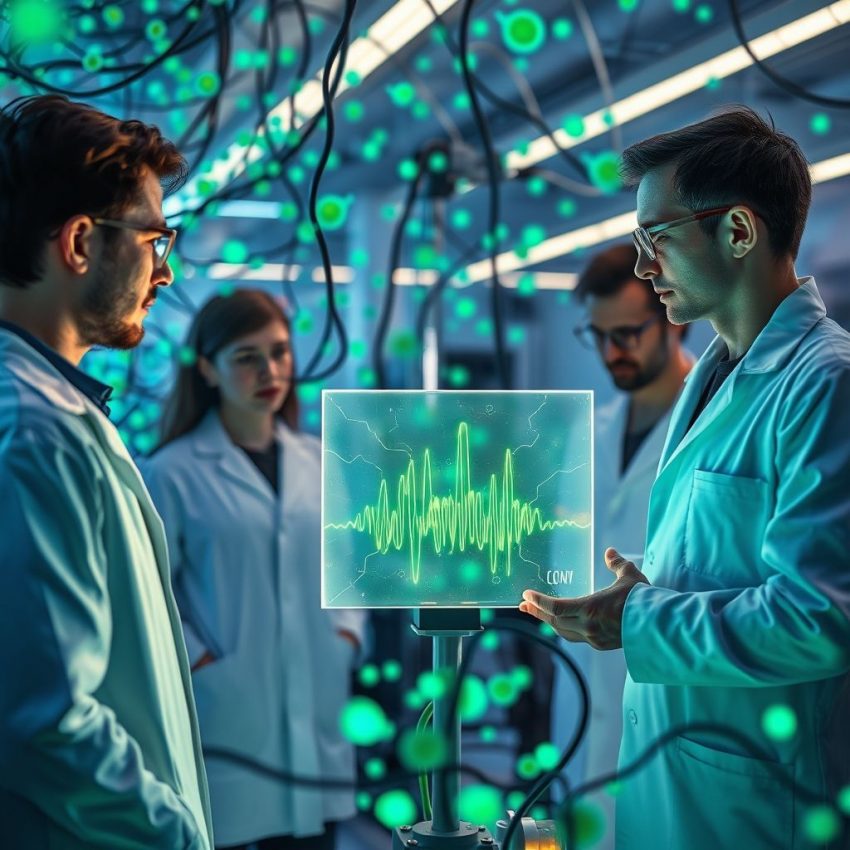World's First "Synthetic Biological Intelligence" Runs on Living Human Cells: A Giant Leap or a Brave New World?
The world of artificial intelligence is constantly evolving, pushing boundaries and redefining what's possible. But a recent breakthrough has taken things to a whole new level, blurring the lines between biology and technology in a way we've never seen before. Scientists have successfully created the world's first "synthetic biological intelligence" (SBI) – a system capable of learning and making decisions, powered not by silicon chips, but by living human cells.
This groundbreaking achievement, published in [Insert Journal Name/Link Here], describes a system where a network of human brain cells, grown in a lab, learned to perform goal-directed tasks. In the initial experiments, these "brain-on-a-chip" systems successfully learned to play Pong, demonstrating a rudimentary form of learning and adaptation.
How does it work?
These SBI systems utilize a combination of advanced techniques:
- Induced pluripotent stem cells (iPSCs): These cells are derived from adult human cells and reprogrammed to behave like embryonic stem cells. This allows researchers to create virtually any cell type, including neurons.
- Microelectrode arrays (MEAs): These devices provide a platform for the cells to grow and connect, forming a functional neural network. The MEAs also allow researchers to stimulate the cells with electrical signals and record their activity.
- Closed-loop feedback system: This crucial component allows the system to learn. The cells receive feedback on their performance in real-time, allowing them to adjust their activity and improve their performance on the given task.
The implications are profound:
This breakthrough opens up a Pandora's Box of possibilities and potential ethical considerations:
- Drug discovery and personalized medicine: SBI could revolutionize drug development by providing a more accurate and human-relevant model for testing drug efficacy and toxicity.
- Disease modeling and treatment: Studying neurological disorders in a living human cell-based system could lead to a better understanding of disease mechanisms and the development of more effective treatments.
- Understanding the brain: SBI offers a unique window into the workings of the human brain, potentially unlocking mysteries of consciousness, learning, and memory.
- Ethical concerns: As with any groundbreaking technology, there are ethical implications to consider. Questions surrounding the rights and moral status of these biological intelligences, potential misuse, and the long-term consequences of creating such systems need careful examination.
A future powered by biology?
While still in its early stages, SBI represents a paradigm shift in artificial intelligence. Moving away from traditional silicon-based computing and harnessing the power of biology could unlock unprecedented computational power and lead to breakthroughs in numerous fields. However, this journey into the uncharted territory of biological computing requires careful consideration of the ethical implications and a commitment to responsible development. The future is biological, and it's just beginning to unfold.
What are your thoughts on this groundbreaking development? Share your comments below!
Don’t miss out on this exclusive deal, specially curated for our readers! Amazon Fire TV 32″ 2-Series Review: Affordable Smart TV Packed with Value
This page includes affiliate links. If you make a qualifying purchase through these links, I may earn a commission at no extra cost to you. For more details, please refer to the disclaimer page. disclaimer page.

